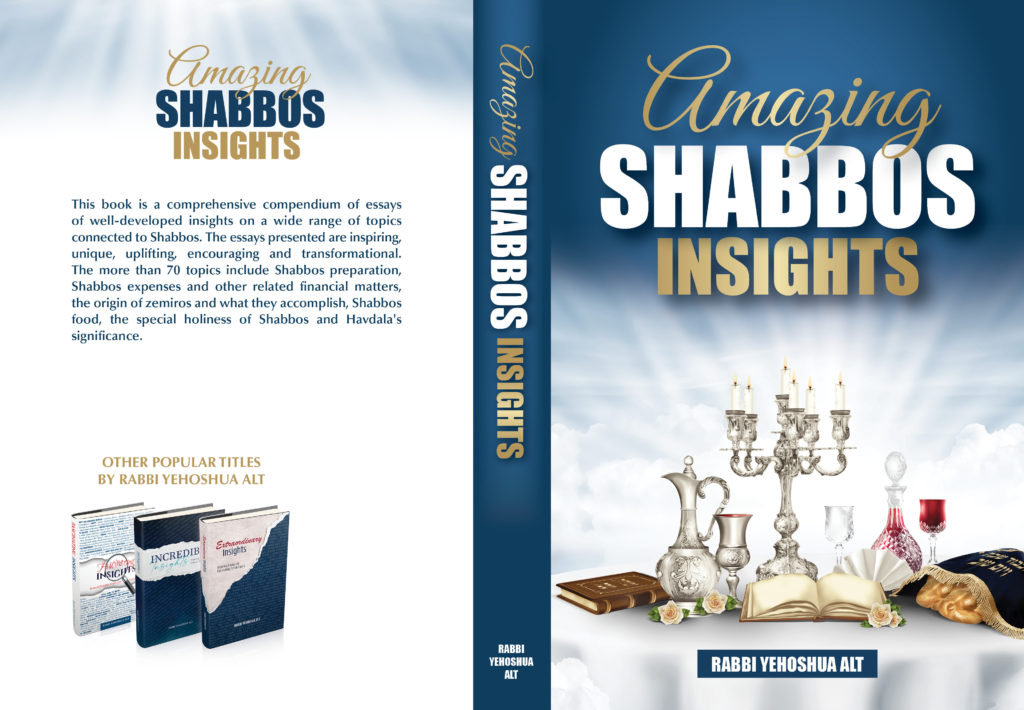The Greatness of Preparing for Shabbos
Preparation Period
The outcome is in proportion to the investment. This can be compared to an archer. The more power he puts behind his bow and arrow, and the more carefully he takes aim, the more efficient it will be. The same applies to spirituality, whether it be preparing for tefilla, Shabbos and the like.[1] The more one prepares, the more will be produced.[2] In fact, the word hachanah, preparation, is related to the word kano, base,[3] because preparation is the base for that which everything stands. In light of this we can comprehend why the early pious ones would prepare an hour before tefilla,[4] as their preparation was the impetus for their great tefillos.
To attain the kedusha of Shabbos, we need hachanah, preparation, for Shabbos. Although preparation for all Avodas Hashem is important, the only time it is stated explicitly is in connection with Shabbos: v’hayah ba’yom ha’shishi v’haichinu es asher yaviu, it shall be on the sixth day when they prepare what they bring.[5]
Of all of the days of the week, Friday is the day that represents preparation as we will now demonstrate. The seven days of the week are connected to the seven shepherds — Avraham, Yitzchak, Yaakov, Moshe, Aharon, Yosef and Dovid. So Friday, the sixth day, matches up with Yosef, the sixth shepherd.[6] One way we see this is that Yosef exemplifies purity because he overcame the test with the wife of Potifar in the area of circumcision[7] and on Friday we purify ourselves in preparation for Shabbos by going to the mikva.[8]
Friday is the day of preparation for Shabbos as the gemara says mi she’tarach b’Erev Shabbos yochal b’Shabbos,[9] whoever toiled on Friday will eat on Shabbos. Additionally, it says v’hayah ba’yom ha’shishi v’haichinu es asher yaviu v’hayah mishneh al asher yilkitu yom yom, it shall be on the sixth day when they prepare what they bring it will be double what they pick every day.[10] Yosef represents the idea of preparing for Shabbos because Yosef told Paroh to prepare for the years of famine by preparing in the years of plenty.[11] Also, he said u’tvoach tevach v’hachain, have meat slaughtered and prepare it.[12]
In Lecha Dodi we say mai’rosh mikedem nesuchah, from the beginning, from antiquity she was honored. The words mai’rosh and mikedem both mean “from the beginning,” so what is the difference between them? In the six days of the week, we have 144 hours. 144 is the gematria of kedem. The more we invest in Shabbos from the 144 hours from the onset of the week — the hours in the week prior to Shabbos — then nesuchah, the more we will feel the queenliness of Shabbos. The more we prepare for Shabbos, the more we will feel Shabbos. May we all merit to prepare properly for Shabbos during the week so that we will enjoy it so much more.
[1] Prior to Baruch She’amar we say hareini mizamein es pi, I now prepare my mouth. In a similar vein, prior to performing mitzvos, such as with sefira, we recite hinini muchan u’mezuman…, I am prepared and ready to perform the commandment of…
[2] Ohr Hachaim, Shemos 33:11.
[3] Shemos 30:18. There is a saying, “Today’s preparation determines tomorrow’s achievement.”
[4] Brachos 30b.
[5] Shemos 16:5.
[6] Dovid Hamelech corresponds to Shabbos. On this day, we say in Shemoneh Esrei, yismichu v’malchuscha shomrei Shabbos, they shall rejoice in Your kingship, those who observe Shabbos. Additionally, Shabbos is associated with royalty as it is called Shabbos Malkisa, the Shabbos queen.
[7] Breishis 39.
[8] The six orders of Mishnayos (See Shabbos 31a) parallel these six shepherds. Yosef who is the sixth shepherd corresponds to Seder Taharos, the sixth order of Mishnayos. When there was a famine in Mitzrayim there were nevertheless provisions (shever), because of Yosef. R’ Moshe Wolfson notes that the words shever b’Mitzrayim (Breishis 42:1) shares the same numerical value as Seder Taharos, 884.
[9] Avoda Zara 3a.
[10] Shemos 16:5. On Friday, the Jews in the desert received a double portion of munn, just like Yosef received a double portion in Eretz Yisrael as his two sons become two shevatim.
[11] Breishis 41:34-35. See 41:48-49.
[12] Breishis 43:16.
Rabbi Yehoshua Alt
Author of four books including the recently released “Amazing Shabbos Insights”.
To purchase any of the author’s books (hardcopy or e-book) and get it delivered to your door, please send an email to yalt3285@gmail.com or visit https://amzn.to/3eyh5xP
(where you can also see the reviews). To join the thousands of recipients and receive these insights free on a weekly email, obtain previous articles, feedback, comments, suggestions (on how to spread the insights of this publication further, make it more appealing or anything else), to sponsor this publication which has been in six continents and more than forty countries, or if you know anyone who is interested in receiving these insights weekly, please contact the author, Rabbi Yehoshua Alt, at yalt3285@gmail.com. Thank you.

